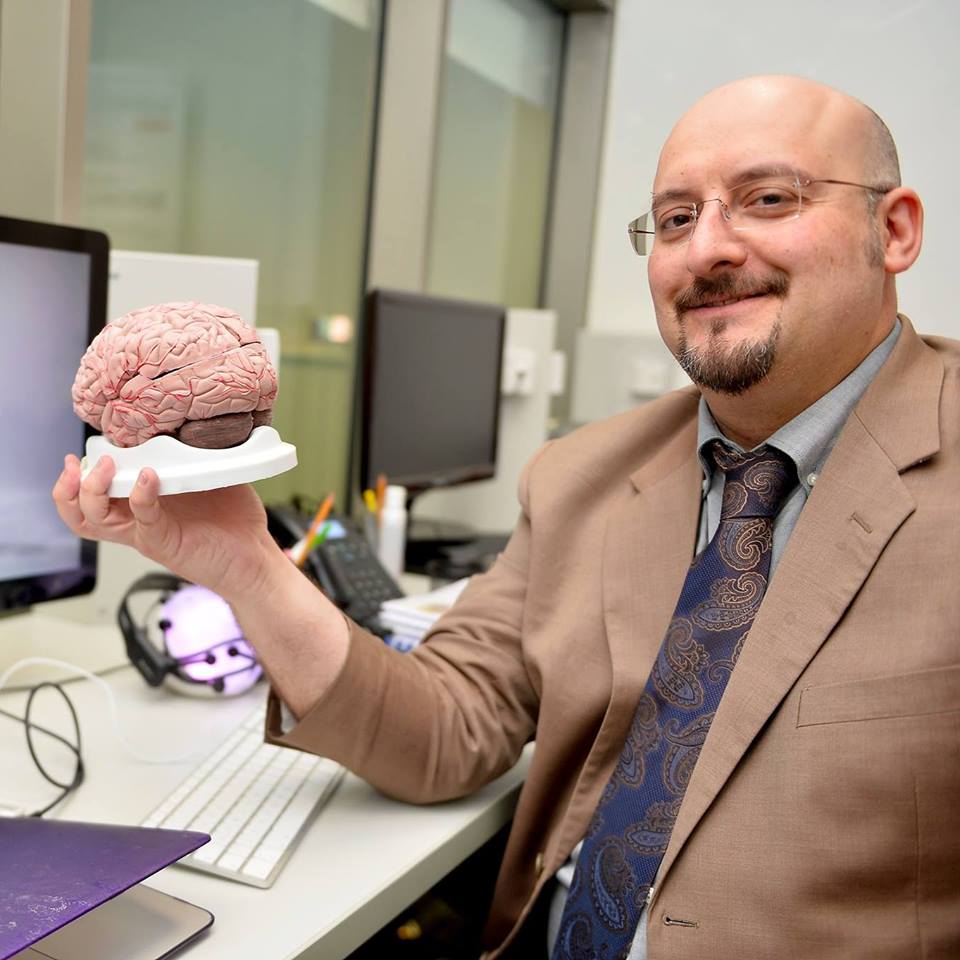
My Expertise
Human-robot interaction
Human performance
Cognitive philosophy
Philosophy of cognitive science
Philosophy of neuroscience
Philosophical psychology
Philosophy of mind
Philosophy & theory of Artificial Intelligence
Technology ethics
Embodied cognition
Social cognition
Phenomenology
Fields of Research (FoR)
Human Movement and Sports Science not elsewhere classified, Cognitive Science, Philosophy of Cognition, Philosophical Psychology (incl. Moral Psychology and Philosophy of Action), Other Artificial Intelligence, Sport and Exercise Psychology, Adaptive Agents and Intelligent RoboticsBiography
Massimiliano (Max) Cappuccio is Deputy director of the Values in Defense and Security Technology group. His research in human performance and human-machine interaction attempts to combine different embodied approaches to cognition. As a cognitive philosopher and a technology ethicist, his research on intelligent systems is interdisciplinary and aims to integrate phenomenological analyses, empirical experimentation, and synthetic modeling. His...view more
Massimiliano (Max) Cappuccio is Deputy director of the Values in Defense and Security Technology group. His research in human performance and human-machine interaction attempts to combine different embodied approaches to cognition. As a cognitive philosopher and a technology ethicist, his research on intelligent systems is interdisciplinary and aims to integrate phenomenological analyses, empirical experimentation, and synthetic modeling. His current research focuses on skill acquisition and disruption, social-robotics, theory and ethics of artificial intelligence and autonomous systems. His early work has focused on mirror neurons theory, joint attention and deictic pointing, the frame problem of artificial intelligence, and the philosophical foundations of computationalism. During his career, he has produced more than a hundred original scientific contributions, including papers in journals, book chapters, collective volumes, special issues of journals, and papers presented at international conferences. He conducts an intense activity as an organizer of academic events, including interdisciplinary workshops, research seminar series, and international conferences (like the TEMPER workshop on Training, Enhancement, and Military Performance and the annual Joint UAE Symposium on Social Robotics).
My Qualifications
Max has a background in embodied cognitive science, with a phenomenologically informed and empirically oriented approach. His undergrad studies at the University of Milan included a one-year visit as Erasmus student at the Institute for Logic, Language, and Computation of the University of Amsterdam. His Master thesis on Alan Turing and the origins of computationalism was awarded by Istituto Italiano per gli Studi Filosofici with a national prize in 2006 and subsequently published as a book. His doctoral studies at the State University of Pavia included a two-year period in Paris (CREA/École Polytechnique and École Normale Supérieure de Paris) to deepen the methods of neurophenomenological research. In 2008 he defended his PhD dissertation dedicated to mirror neurons and the phenomenological models of empathy. In 2009, a fellowship from the Royal Society of Edinburgh/Caledonian Foundation funded his seven-month research visit at the University of Stirling and University of Edinburgh. This period was followed by one year as post-doctoral research fellow at Bentley University (Waltham, MA): during this time, he was a visiting researcher at the Philosophical Psychology Lab of Harvard University. In 2011 and 2012 he spent periods of research visit at the University of Hertfordshire and, thanks to a fellowship from the Danish Government, at the Center for Subjectivity of the University of Copenhagen. In 2012 he spent nine months as Visiting Scholar at the University of Memphis under a Fulbright Fellowship. In 2015, and then again in 2017, he spent the months of July and August as a Visiting Professor at Macquarie University and the University of Wollongong to work on the philosophy of skill and expertise. This work led to the publication of the MIT Press Handbook of Embodied Cognition and Sport Psychology. In 2018 he spent periods of research visit at Okinawa Institute of Science & Technology and the Creative Robotics Lab of University of New South Wales Sydney to develop his work in cognitive robotics.
My Research Activities
His current activity mainly focuses on three areas of theoretical and applied research:
1) Human performance and training (skill acquisition and disruption in sport, flow and the choking effect, anticipatory control of action, philosophy of expertise, cognitive augmentation).
2) Human-robot interaction (social robotics, philosophy & theory of artificial intelligence, situated and embodied robotics).
3) Technology ethics (value-sensitive design, virtue ethics applied to robot ethics, machine ethics, professional ethics in information technology).
My Research Supervision
Areas of supervision
Cognitive science (embodied cognition, social cognition, phenomenology & cognitive science, cognitive philosophy)
Philosophy & theory of AI
Human performance
Philosophical psychology
Sport & Performance psychology
Philosophy of technology
Technology ethics
Autonomous agents
Human-robot interaction
Social robotics
Location
The University of New South Wales, Canberra
Campbell ACT 2612, Australia
Map reference (Google map)